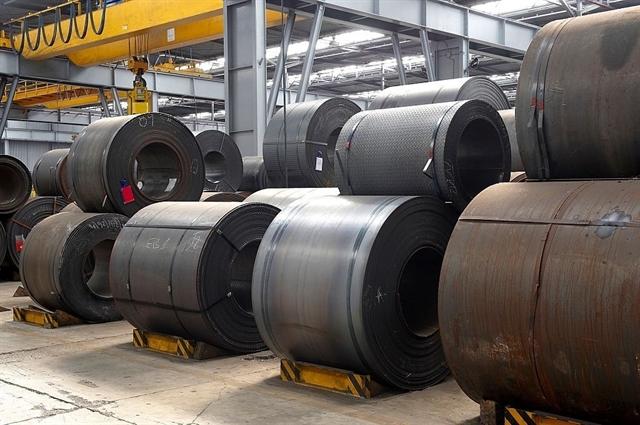 Economy
Economy

 |
| Production at Hồ Gươm Garment Joint Stock Company. Access to capital is among the biggest difficulties for enterprises after two years hit by the COVID-19 pandemic and global macroeconomic instabilities. — VNA/VNS Photo Trần Việt |
HÀ NỘI — Orders are returning but Vietnamese enterprises are still struggling with capital shortage due to difficulties in accessing capital.
According to S&P Global, Việt Nam Manufacturing Purchasing Managers’ Index (PMI) climbed to 50.3 in January from 48.9 in the previous month.
It was the first expansion in factory activity since last August, boosted by rises in new orders and output. New orders grew for the first time in three months, boosted by demand both domestically and abroad, with export orders rising for the first time since last October.
Updates from the General Statistics Office also showed that trade revenue of Việt Nam jumped by 37.7 per cent to US$62.22 billion with a surplus of $2.92 billion.
Economist Đinh Trọng Thịnh said that after more than one year struggling with falls in orders, orders are returning to Vietnamese enterprises, thanks to the effort to maintain traditional markets, expand new markets and take advantage of free trade agreements (FTAs).
There are signs for recovery in production and business this year, Thịnh said.
However, enterprises are facing a number of difficulties, especially capital shortage.
Statistics of the Ministry of Planning and Investment showed that more than 53,800 enterprises withdrew from the market in January, a rise of 22.8 per cent against the same period last year and nearly two times higher than the number of new firms plus those resuming operation.
According to the Private Economic Development Research Board’s report, businesses still see difficulties and challenges. Through statistics, it can be seen that businesses are being exhausted after more than 2 years combatting the COVID-19 pandemic and global macroeconomic instability.
If support is not raised promptly, businesses will run out of resources and strength, the report pointed out. “Enterprises are in need of support more than ever. It’s time to introduce drastic solutions to nurture their confidence and improve their capacity, as well as the entire economy.”
The report highlighted that access to capital is among the two biggest difficulties for enterprises, coming after drops in orders.
Enterprises still found that access to banking credit has not improved much.
Only around 6.8 per cent of enterprises are optimistic about their ability to access loans in 2024, while up to 37.7 per cent are pessimistic and 1 per cent very pessimistic.
According to VIS Rating, enterprises’ strength is being undermined by falling global demand, rising inflation risk and difficulties in accessing capital.
Nguyễn Đình Tuệ, Director of HCM City Small and Medium Sized Enterprises (SMEs) Promotion Centre, urged measures to improve access to banking credit.
Rates have been cut but enterprises, especially SMEs, still found it difficult to get bank loans due to the lack of transparency in financial situation and shortage of mortgage assets.
The State Bank of Việt Nam set the credit growth target at 15 per cent this year and signalled to increase the target to 16 per cent if the economy needs. The central bank also asked credit institutions to further cut lending rates and improve access to capital for enterprises.
In the first month of this year, credit growth remains slow. As of January 18, the total outstanding loan dropped 1.52 per cent against the end of 2023.
To avoid the situation that banks have cash, but enterprises are still hungry for capital, as in 2023, the Private Economic Development Research Board proposed the central bank cut rates further, ease loan conditions with faster procedures and focus on promoting credit growth and providing lending to SMEs.
In addition, banks need to expand lending to startup firms which do not have mortgage assets at rates of below 10 per cent so they can expand in their early years. — VNS









